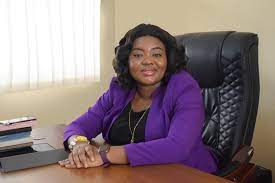The Legal Resources Centre (LRC), a human rights Non-Governmental Organization (NGO) has called on citizens to shift from the use of fossil fuels for electricity generation to the use of renewable energy.
The LRC said there was the need for collective advocacy by citizens, for Ghana to shift from burning fossil fuels, oil, coal and natural gas among others for electricity generation to the use of renewable resources of energy such as wind, solar, hydro or geothermal energy.
Mr Enock Jengre, the Programme Officer of the LRC, said would mitigate the effect of climate change on lives and the economy, adding that, “The impact of climate change is felt all around us.”
Speaking at a day’s sensitization workshop in Bolgatanga, Upper East Region, Mr Jengre recalled that in 2015, Ghana signed onto the Paris Agreement on climate change and how countries could collectively work on ways to mitigate the impact.
The sensitization workshop brought together officials and students from various educational institutions, members from the hospitality industry, NGOs and officials from the Environmental Protection Agency among others.
The workshop formed part of activities of the LRC’s one-year project dubbed “Awareness Creation on Climate Change and Energy Transition in Upper East Region” with funding support from the Ford Foundation through the Africa Centre for Energy Policy (ACEP).
The Programme Officer said, the Government of Ghana had shown commitment in its energy transition towards alternatives through the development of a National Energy Transition Framework (NETF).
He said the NETF launch, a home-grown, data-backed and multi-pronged strategy, focused on critical energy sectors to achieve net zero emissions by 2070, which also called for stakeholder awareness and advocacy towards a shift from fossil fuel use.
Mr Jengre said the workshop was intended to create awareness on various provisions of the NETF as Ghana aspired to achieve zero emission by 2070, “Nigeria has earmarked 2060. The global year is 2050, but countries have to look at which year they can achieve it.”
He said apart from the need for stakeholders to complement government’s efforts to achieve its target, it was critical for them to pressure government to ensure that the cost of alternative sources of energy, especially Liquefied Petroleum Gas was affordable.
On the role of citizens to help government achieve the net zero emissions by 2070, Mr Jengre called on the public to be ambassadors of net zero emissions, “Let’s drive less, possibly, let’s walk if we can, stop bushfires and ensure our homes are properly distilled to prevent environmental pollution.”
Mr Awal Ahmed Kariama, the Executive Director of the Rural Initiative for Self-Empowerment-Ghana (RISE-Ghana), an NGO, who spoke at the workshop, called on residents to play their role to reduce the effects of climate change while government concentrate on national policy to address the effects of climate change.








![Stonebwoy holds star-studded party for ‘5th Dimension’ mega album [Video]](https://ghananewss.com/storage/2023/04/stonebwoy-partyy-100x75.jpeg)









